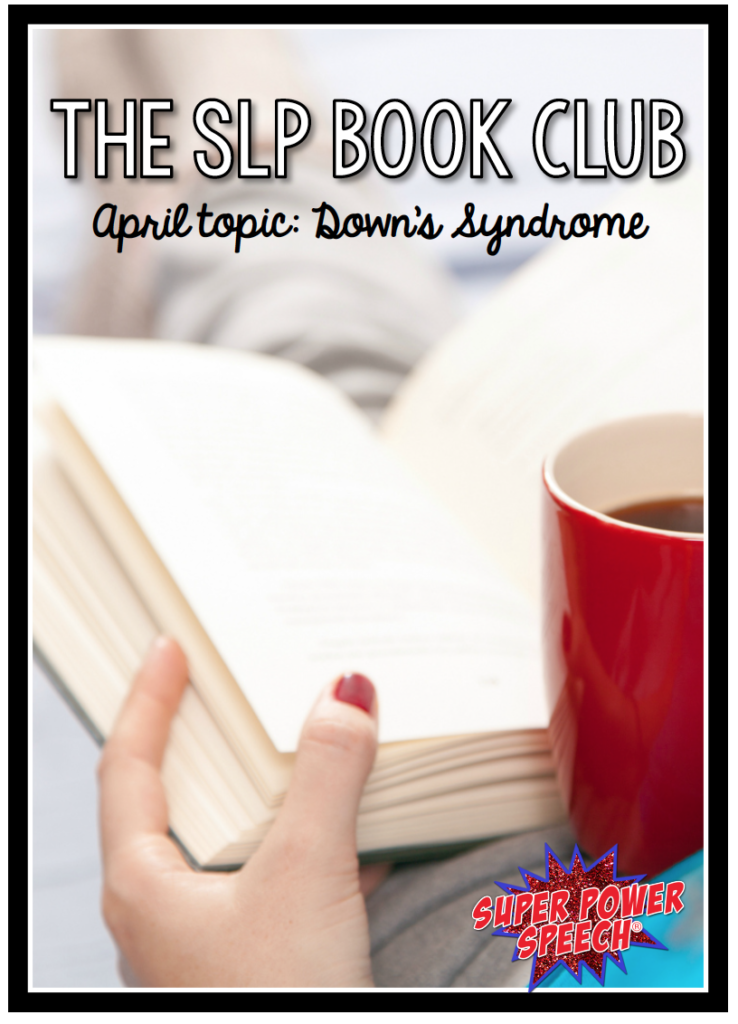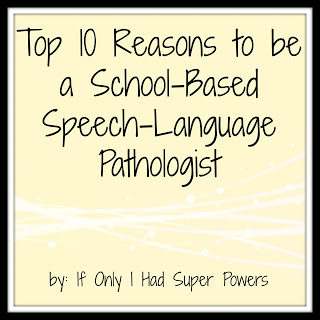The SLP Book Club: Down’s Syndrome

Welcome to the second SLP Book Club! This book club has been my dream and my baby as an SLP and a bibliophile. I am so excited to find others out there that want to explore new books with me and discuss them in the comfort of your jammies and slippers!
Disclaimer: Amazon affiliate links included
Book 1: Jewel
Author: Bret Lott
Genre: Fiction
The low-down: This novel is initially set in 1940s Mississippi. The book gives us a look into the past and current life of the main character, Jewel, and her family. At several months of age, Jewel’s youngest child, Brenda Kay, is not developing as her siblings had. After the family is sent to a specialist who gives Brenda Kay the diagnosis of “Mongolian Idiot”. From that point on we witness Jewel change as a character from a wife and mother to many to a devoted caregiver of one. She cajoles her husband into moving cross-country to follow her dream of finding education and help for Brenda Kay. In California, they find a new life.
The bibliophile’s review: This book sat with me the wrong way throughout. Much of my queasiness had to do with the time and location of the book: racism, elitism, sexism. In addition, however, I didn’t like Jewel as a main character. I don’t know what I would do if I was in Jewel’s situation, however, the way that she focused her hatred and dreams so precisely made me want to back away from her. The book was an overall interesting character study, with some hopeful sections regarding education for people with special needs.
The SLP’s review: Unlike Jewel, the character of Brenda Kay was very likable. As an SLP, I loved seeing her language slowly evolve over time from single word to multiple word phrases. I adored that she remembered names of people from long ago and could sometimes recognize them in person. Her flirtations with Dennis helped the reader to see her as a grown up, even while her cognitive skills remained at a child’s level. I also found the schooling by Mr. White to be very interesting and innovative for the time.
Overall rating: 3/5
Quote to ponder:
What I grieved for was the spark, that undeniable spark behind his eyes, in his eyes, that had gone untapped. I didn’t know what that spark meant, didn’t know what it might have meant. But it was gone.” (page 228)
Discussion questions:
- What did you think of Mr. White’s teaching methods? In what ways are they similar and different to special education today?
- (Not SLP related, but I really want to know what you think!) Why did Leston insist that the family move back to Mississippi? Why did he change his mind again and move back to California?
Book 2: An Uncomplicated Life
Author: Paul Daugherty
Genre: Memoir
The low-down: This sweet memoir is written by a father who obviously adores his daughter. The book chronicles the diagnosis of Down’s Syndrome several weeks after Jillian Daughter’s birth, through her twenties. She is an exceptional child who is kind, happy, and beloved by all who know her. While Jillian enjoys her way through school and extra curricular activities, her parents stay behind the scenes fighting for more and better opportunities for their only daughter. She develops into an independent, brave, and smart young woman that the reader would really like to know personally.
The bibliophile’s review: I really enjoyed this book. It was a very quick read for me. It was inspiring and hopeful to see how full this family’s life was because of Jillian. It was inspiring to see any young adult, let alone one with Down’s Syndrome, be successful, in love, and independent.
The SLP’s review: I have to admit how amazed I was by Jillian’s functioning level. Within my school, we have three life skills classrooms for children with severe to profound needs. I have worked with many children with Down’s Syndrome over the years, and none have been able to mainstream for more than 30 minutes a day. They are minimally verbal or nonverbal and still working on very basic life skills. I found myself wanting desperately to be Jillian’s SLP and work with her, or at the very least get to know her in real life.
Overall rating: 4/5
Quotes to ponder:
“The miracle of an imperfect child is the light she casts on your own imperfections. After a time, she will teach you far more than you will teach her, and you will discover that “normal” comes with a sliding scale.” (page 22)
“In later years, as Jillian entered fourth and fifth grades, it wasn’t her physical shortcomings that defined and limited her. Jillian never missed a kickball game. her delayed speech created the growing divide between her and her classmates.” (page 89)
“Without 47, Jillian isn’t Jillian.” (page 361)
Discussion questions:
- What are your experiences with schools providing the “optimal education” as opposed to a “free and appropriate” education?
- What contributes to Jillian’s ability to lead an independent life as an adult?
- Does Jillian inspire you? If so, how?
Book: The Memory Keeper’s Daughter
Author: Kim Edwards
Genre: Fiction
The low-down: This is (luckily) a fictional story about a man who delivers his wife’s twins, only to secretly send one of the children away when he realizes that she has been born with Down’s Syndrome. The clincher is that he tells his wife that the child had died, not that he had sent her away. The nurse who was tasked to taking the child to a home, instead, informally adopts the child and raises her in another state. The book then chronicles the next 24 years of the lives of all of these characters; including the devastating and occasionally heartwarming results of that one decision.
The bibliophile’s review: When I initially read this book, at least five years ago, I loved it. I rated it 5/5 stars and felt that it was well written and very touching. This read through, however, I felt so much more angst. The cruelty of David for making this decision and lying to his wife grated on me throughout. Norah’s grief and growth, but also her infidelity were heartbreaking. And the lives of Paul and Phoebe, growing up without each other, were hard to swallow. As an adoptive mother, I could understand Caroline’s fears, doubts, and identity in her her adoptive daughter; however, the fact that this “adoption” was never legally finalized and arranged without maternal consent made me nauseous. Overall, I can only recommend this book with serious reservations.
The SLP’s review: I loved Phoebe. I loved her character, feelings, emotions, and devotion to her family. I appreciated that the author made her grow up, albeit slower than her brother, and find love and confidence that even her typically functioning brother had not yet experienced. I do wish that Phoebe’s character could have been developed even more in this book.
Overall rating: 3/5
Quotes to ponder:
“She thought of the camera, its precise dials and levers. The Memory Keeper, it said on the box, in white italic letters; this, she realized, was why she’d bought it–so he’d capture every moment, so he’d never forget. (page 88)
“Are you sure?” the nurse asked, looking up and meeting her eyes. “Are you really sure you want me to call a doctor?” (page 168)
“He could never know what might have happened… A boy. On the surface, perfect, and a small singing started, deep in his father’s brain. A moment later, the second baby. And then his father’s singing stopped for good.” (page 399)
Discussion questions:
- If you were Caroline and were handed a baby with Down’s Syndrome in 1964. What would you have done?
- How have, or have not, our societal view of children born with differences changed since the 60s.
- What do you think about the relationship that could have been between Paul and Phoebe, had they grown up together?
Ready to start discussing? Go!








I have had “Jewell” on my shelf of books for years. I re-read it for this club and I am not sure why I kept it all this time. I didn’t care for it, and suspect my own attitudes and outlook have changed.
Leston appeared to have thought that once Brenda Kay could write that Jewell had succeeded in her quest for help for their daughter. Not sure if his mind changed due to the snake incident as much as his desire to be the patriarch over his sons. I thought both Jewell and Leston were selfish at times.
I also did not really enjoy “Jewell” – the language that was used to describe the time/culture rubbed me the wrong way. Just wasn’t feeling it.
Yep. Not a fan. I wouldn’t re-read this book….
It is going on the donate pile
I read “Jewell” several years ago, and made the decision not to read it again. I also was not a fan of this book.
I didn’t really enjoy this book either. I could not connect with Jewell. I liked that she advocated for Brenda Kay but it seemed it was at the expense of her relationships with her husband and other children. I felt sad that they were often ignored. I loved Brenda Kay’s character. She reminded me of some of the children I have served. What a happy girl! It was interesting how Downs Syndrome was addressed in the 1940’s. I loved the hands on/ multi sensory approach Mr. White’s school used. Overall it wasn’t one of my favorite books.
I only read “Memory Keeper” and found it sad, but good at the same time. I felt so bad for Norah, never knowing her daughter until she was grown, and was angry at the Dr. dad who did that. I totally understood why the nurse did what she did, and if I were her in that time frame, I’d probably do the same thing.
I agree, I could not have left that baby in the institution, and I feel Caroline’s life was enhanced by keeping Phoebe. I don’t think I will ever understand David’s decision; was he trying to protect himself or his wife? Either way he destroyed their lives and cheated his son of the joy of his sister.
I’m sure Caroline’s life was better because of it. I’m an adoptive mom myself and see the wonder and joy of raising a child that I did not birth. That said, however, my heart breaks for her birth mother who had no say in any of this!
I really feel bad for Norah, who had no say in the decision! She was a tough lady and she could have handled the difficulty of having a child with special needs – or at the very least, she should have been given the chance to try! It really seems to say that Dr. David didn’t trust Norah and didn’t think very highly of her that he needed to bear the burden himself and not tell her about it.
I’m not sure so much that David didn’t trust Norah as much as he didn’t trust himself. I think he just couldn’t handle the thought of losing a child like he lost his sibling and assumed that Norah would be like him in this way.
I only had a chance to read “An Uncomplicated Life.” I really enjoyed how easily the story flowed and admire the parents for their persistence in the fight to get Jillian the best possible education. I was also amazed by her functioning level. During the early chapter about the SLP and how she was one of the “angels” in Jillian’s life, I found myself doubting my skills. I have worked with many children with Down Syndrome and have never had one go as far as Jillian. I kept wondering if it was my somehow my fault. I wish I could say that I thought every student I have worked with got the “optimal” education, but we all know that is not always how it works out. Jillian’s story has given me new resolve for the 5 year old I am working with to make sure she reaches her full potential.
THe first book that I read was “The Memory Keeper’s Daughter” and I loved it, even though most of it felt heart-wrenching. Throughout the book, I was appalled at David’s selfish actions… But I also felt sorry him, especially toward the end of his life, when he had felt the course of his decisions in full force. After reading the book, I did wonder what their lives might have been like if Paul and Phoebe might have grown up together. Perhaps Paul would not have retreated so much into music. Perhaps he would have been closer to his family, all banding together to support each other. Lots of possibilities there!
I do think that if I were Caroline in the 1960s, I would have taken that baby!
I read this book several years ago, and it was worth a second look. I had a variety of emotions, but mostly sad and I too felt sorry for David and the choices he made. I also would have acted as Caroline did in taking the baby. It truly did enhance her life, and she did the best she could in making such a quick and life changing decision.
“An Uncomplicated Life” was, at times, both awe-inspiring and uncomfortable to read for me. While I was constantly amazed at how Jillian was able to transcend, to grow into an adult with such independent skills, I have to admit that the author’s bitter descriptions of working with the “school people” felt a little… personal? Perhaps because I am a “school person”, and have been in those IEP meetings that have gone on for hours! I’m not really sure, but something about the tone of the book felt uncomfortable at times for me. Overall, though, I found myself thinking that Jillian is such a cool kid – she wouldn’t have gotten where she was without the advocacy of her parents.
I totally agree with your comment about the descriptions of the “school people.” I was a little uncomfortable with the attitude toward the school system.
Well, it seems I’m a (couple) of days late. I am nearly finished with Jewel. While it could have been an amazing story, I found it the story to be slow moving and I wasn’t a fan of the author’s writing style. I think so much more could have been done with the subject, It seemed to focus more on Jewel’s issues than Brenda Kay.
The Memory Keeper’s Daughter was good, but I felt sad while reading it. I totally agree with Andrea’s comment above.
I read “The Memory Keepers Daughter”. It was a great read. Definitely kept me on my toes and a little anxious as I turned each page. It was heartbreaking at the end to learn that the mother found out about her lost daughter. In addition it was refreshing to see how the son/brother handled having a sibling with special needs. It would have been nice to see them grow up together. I completely agree with Caroline’s decision to keep the baby and raise her on her own.
I only read “The Memory Keeper’s Daughter.” I read this years ago and enjoyed coming back to it. It can be a very emotional read!
If I were Caroline, I believe I would have done the same thing she did – there’s no way I would have been able to leave her in that institution. I felt so relieved when she drove away from that place with Phoebe.
I like to think our societal view of children born with differences has significantly changed since the 1960s. I think we see the possibilities instead of the limitations of these kids. As I’m due any day now with my first baby, I can’t imagine what it would feel like to have that baby whisked away and told that it had passed, only to discover, years later, that the baby was still alive and thriving. How heartbreaking!
I wish we could have seen the relationship develop between Paul and Phoebe. I think it would have been a struggle at times, but I think they both would have benefited from knowing and growing up with each other.
“An Uncomfortable Life” was very interesting. I think we can all benefit from looking at a child from multiple views, including the parent, classroom teacher, sibling, and SLP. This book helped me to see even deeper as a parent.
“In later years, as Jillian entered fourth and fifth grades, it wasn’t her physical shortcomings that defined and limited her. Jillian never missed a kickball game. her delayed speech created the growing divide between her and her classmates.” (page 89)
I totally agree that a speech delay can create a divide between a student and his/her peers. This provides even more support to early and frequent intervention so that speech skills are remediated before social skills are impacted. Often students with speech delays have slower response times, in addition to articulation and language impairments, which interfere with peer interactions. Often our students have difficulty with sarcasm which is prevalent in interactions in late elementary and middle school. The cards are stacked, and it is up to us to provide intervention early enough for our student’s success academically and socially.
Yes, I agree – I did appreciate all of the levels of relationships that were detailed. We really can learn so much from looking broader. I was torn a lot reading the book – humbled as an SLP, inspired as a parent.
1. If you were Caroline and were handed a baby with Down’s Syndrome in 1964. What would you have done? I really don’t know what I would have done, but I may have done the same thing. I really wanted Caroline to bring the baby back to Norah in the first week even though she and David would have gone to blows about it and their relationship would have been strained all along, but isn’t it interesting that it was strained even so?
2. How have, or have not, our societal view of children born with differences changed since the 60s? This is a tough one for me. As an SLP, my frame of reference is so influenced by my profession that I can’t help but think that people are now more knowledgeable about disorders and more understanding, but that’s probably an optimistic view.
3. What do you think about the relationship that could have been between Paul and Phoebe, had they grown up together? From the bit of relationship they began at the end of the book, I think that it would have been really positive for them to grow up together.
Overall, the thing that really stuck out to me was the power of the secret. I believe Dr. David had the best of intentions by keeping the secret, but it very quickly became more about self preservation than about not hurting Norah. It ruined everything in their relationships and pushed them away from each other, even from Paul. They couldn’t get too close and intimate, because the secret could get out. But everyone wants intimacy and when they can’t get it in their family, they seek it out and act out in ways that negatively effect their family relationships.
You are totally right. It’s the secret that had such a huge impact in it all and ruined everything in their relationship. Great point!